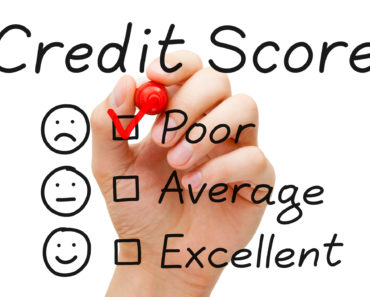Are you applying for a mortgage, buying a new car, or perhaps renewing your insurance?
Did you know that a good credit score can have a significant impact on each of these financial activities?
Experian explains it with the best example. If you have a credit score of 700 when applying for a mortgage loan of $350,000 (30-year terms), you’ll pay $16,319 more than an applicant with a credit score of 760. That’s a lot of money.
As per the findings of a survey conducted by OnePoll in association with LendingPoint, 54% of Americans believe that a bad score can make it challenging to get approved for a loan.
Another 45% reported that they were denied a loan because of a lower credit score. For those who were approved, 43% received restrictive terms and higher interest rates because of their credit score.
If you’re planning to apply for a personal loan, we’ve put together this small guide to help you improve your credit score.
5 Simple Steps You Can Do to Boost Your Credit Score
Order a free credit report to analyze potential issues
The first part of the process is to determine the problem areas in your credit profile. One out of eight American adults does not know their credit score.
Here is what you need to do:
- Order a free credit report from Experian, Equifax, or TransUnion.
- Analyze the report to identify any incorrect financial transactions or history.
- Start acting on a recovery strategy.
Dispute any credit reporting errors
One of the easiest ways to boost your credit score by a couple of points is to dispute any credit reporting errors and get them resolved. For instance, if there is an incorrect late payment charge on your report, getting that rectified will have a positive impact on your credit score.
Pay your bills on time, every time
Your payment history has a 35% weightage in your credit score. If you’ve been late on making bill payments or installments, getting current on your bills will boost your credit score.
In fact, some agencies even help you improve your credit score by getting positive credit for financially responsible behavior. UltraFICO and Experian Boost are among the popular programs.
Minimize your credit utilization rate
Credit utilization is a critical factor for most lenders. It represents the amount of credit you use out of your available credit limit. For instance, if your credit access stands at $10,000, and you’re using $6,000, your credit utilization rate comes out to be 60%.
When it comes to a personal loan, a lender would want you to have a lower credit utilization, which demonstrates your ability to make timely payments. There is no set figure for ideal credit utilization, but keeping it below 35% is a good reference point.
Do not close existing credit accounts
Most people, when trying to improve their credit profile, are inclined towards closing their credit accounts when practicing financial restraints or a ‘credit detox.’ Doing so may prevent you from taking more debt, but it will also lower your overall available credit.
A lower credit limit can raise your credit utilization rate significantly, so you should refrain from closing any existing credit accounts.
Bottom Line
Lenders scrutinize every aspect of your financial life before extending a line of credit. If you have a low credit score, give yourself some time to rebuild your credit using these tips.
The trick is to play your strengths well and exhibit a financially responsible behavior to improve your chances of approval.




